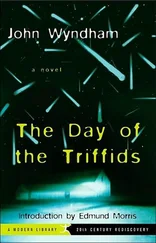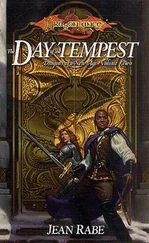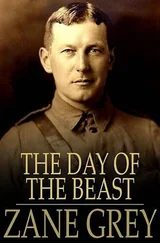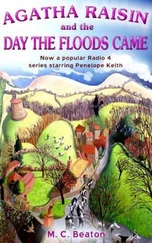The Jackal took in the landscape facing him with a practised eye. Both corner houses on the Rue de Rennes where it debouched into the square were obvious choices. The first three houses up the Rue de Rennes were possibles, presenting a narrow firing angle into the forecourt. Beyond them the angle became too narrow. Similarly, the first three houses that fronted the Boulevard de Montparnasse running straight through the square east to west were possibilities. Beyond them the angles became too narrow again, and the distances too great. There were no other buildings that dominated the forecourt that were not too far away, other than the station building itself. But this would be out of bounds, its upper office windows overlooking the forecourt crawling with security men. The Jackal decided to study the three corner houses on the western side of the Rue de Rennes first, and sauntered over to a café on the corner at the eastern side, the Café Duchesse Anne.
Here he sat on the terrace a few feet from the roaring traffic, ordered a coffee, and stared at the houses across the street. He stayed for three hours. Later he lunched at the Hansi Brasserie Alsacienne on the far side, and studied the eastern façades. For the afternoon he sauntered up and down, looking at closer quarters into the front doors of the blocks of apartments he had picked out as possibles.
He moved on eventually to the houses that fronted the Boulevard de Montparnasse itself, but here the buildings were offices, newer and more briskly busy.
The next day he was back again, sauntering past the façades, crossing the road to sit on a pavement bench under the trees and toying with a newspaper while he studied the upper floors. Five or six floors of stone façade, topped by a parapet, then the steeply sloping black-tiled roofs containing the attics, pierced by mansarde windows, once the quarters of the servants, now the homes of the poorer pensionnaires . The roofs, and possibly the mansardes themselves would certainly be watched on the day. There might even be watchers on the roofs, crouching among the chimney stacks, their field glasses on the opposite windows and roofs. But the topmost floor below the attics would be high enough, provided one could sit well back into the darkness of the room not to be visible from across the street. The open window in the sweltering heat of a Paris summer would be natural enough.
But the further back one sat inside the room, the narrower would be the angle of fire sideways down into the forecourt of the station. For this reason the Jackal ruled out the third house into the Rue de Rennes on each side of the street. The angle would be too narrow. That left him four houses to choose from. As the time of day he expected to fire would be the mid-afternoon, with the sun moving towards the west, but still high enough in the sky to shine over the top of the station roof into the windows of the houses on the east side of the street, he eventually chose those two on the west side. To prove it, he waited until four o’clock on July 29th, and noticed that on the west side the topmost windows were receiving only a slanting ray from the sun, while it still fiercely lit the houses on the east.
The next day he noticed the concierge. It was his third day sitting either at a café terrace or on a pavement bench, and he had chosen a bench a few feet from the doorways of the two blocks of flats that still interested him. Within a few feet, behind him and separated by the pavement down which pedestrians scurried endlessly, the concierge sat in her doorway and knitted. Once, from a nearby café, a waiter strolled over for a chat. He called the concierge Madame Berthe. It was a pleasant scene. The day was warm, the sun bright, reaching several feet into the dark doorway while it was still in the south-east and south, high in the sky over the station roof across the square.
She was a comfortable grandmotherly soul, and from the way she chirped ‘ Bonjour, monsieur ’ to the people who occasionally entered or left her block, and from the cheerful ‘ Bonjour, Madame Berthe ’ that she received each time in return, the watcher on the bench twenty feet away judged that she was well liked. A good-natured body, and with compassion for the unfortunate of this world. For shortly after two in the afternoon a cat presented itself and within a few minutes, after diving into the dark recesses of her loge at the rear of the ground floor, Madame Berthe was back with a saucer of milk for the creature she referred to as her little Minet.
Shortly before four she bundled up her knitting, put it into one of the capacious pockets of her pinafore and shuffled on slippered feet down the road to the bakery. The Jackal rose quietly from his bench and entered the apartment block. He chose the stairs rather than the lift and ran silently upwards.
The stairs ran round the lift shaft, and at each curve on the rear of the building the stairs halted to make room for a small half-landing. On each second floor this landing gave access through a door in the rear wall of the block to a steel fire-escape. At the sixth and top floor, apart from the attics, he opened the rear door and looked down. The fire-escape led to an inner courtyard, around which were the rear entrances to the other blocks that made up the corner of the square behind him. On the far side of the courtyard the hollow square of buildings was penetrated by a narrow covered alleyway leading towards the north.
The Jackal closed the door quietly, replaced the safety bar, and mounted the last half-flight to the sixth floor. From here, at the end of the passage, a humbler staircase led to the upper attics. There were two doors in the passage giving access to flats overlooking the inner courtyard and two others for flats on the front of the building. His sense of direction told him either of these front flats contained windows looking down into the Rue de Rennes, or half-sideways on to the square and beyond it the forecourt of the station. These were the windows he had been observing for so long from the street below.
One of the name plates next to the bell pushes of the two front flats he now confronted bore the inscription ‘ Mlle Beranger ’. The other bore the name ‘ M. et Mme. Charrier ’. He listened for a moment but there was no sound from either of the flats. He examined the locks; both were embedded in the woodwork, which was thick and strong. The tongues of the locks on the far side were probably of the thick bar of steel type so favoured by the security-conscious French, and of the double-locking variety. He would need keys, he realised, of which Mme Berthe would certainly have one for each flat somewhere in her little loge .
A few minutes later he was running lightly down the stairs the way he had come. He had been in the block less than five minutes. The concierge was back. He caught a glimpse of her through the frosted glass pane in the door of her cubbyhole, then he had turned and was striding out of the arched entrance.
He turned left up the Rue de Rennes, passed two other blocks of apartments, then the façade of a post office. At the corner of the block was a narrow street, the Rue Littre. He turned into it, still following the wall of the post office. Where the building ended there was a narrow covered alleyway. The Jackal stopped to light a cigarette, and while the flame flickered glanced sideways down the alley. It gave access to a rear entrance into the post office for the telephone exchange switchboard night staff. At the end of the tunnel was a sunlit courtyard. On the far side he could make out in the shadows the last rungs of the fire-escape of the building he had just left. The assassin took a long draw on his cigarette and walked on. He had found his escape route.
Читать дальше












